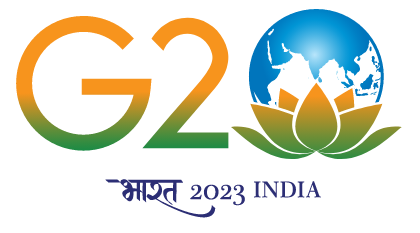I. Background
The Ministry of Skill Development and Entrepreneurship (MSDE) was set up in November 2014 to drive the ‘Skill India’ agenda - to converge existing skill training initiatives and to combine scale and quality of skilling efforts. The MSDE launched the National Skill Development Mission (NSDM) to create an end-to-end implementation framework that provides opportunities for quality short and long-term Skill Development (SD), leading to productive employment and career progression that meets the aspirations of trainees.
NSDM has identified seven sub-missions in crucial areas which require immediate attention. The identified sub missions include: (i) Institutional Training, (ii) Infrastructure, (iii) Convergence, (iv) Trainers, (v) Overseas Employment, (vi) Sustainable Livelihoods and (vii) Leveraging Public Infrastructure.
After the launch of National Skill Development Mission (NSDM), SANKALP was conceived to support NSDM in achieving its full potential. SANKALP has been conceptualized to operationalize Skill India Mission by setting in motion the sub-missions proposed under the NSDM. SANKALP addresses the ongoing challenges like decentralization (strengthening district ecosystem), universalization of National Skills Qualification Framework (NSQF), standardisation of certification and assessments, bringing about convergence, infusing quality in skill development programs and making them market relevant while ensuring private participation.
II. SANKALP: Introduction
To strengthen institutional mechanisms for skill development and increase access to quality and market-relevant training for youth across the country, SANKALP was launched on 19th January 2018. SANKALP has a six-year implementation period till March 2023. SANKALP aims to address the ongoing challenges like bringing about convergence, infusing quality in skill development programs and making them market relevant and accessible while ensuring private participation in the context of short-term training.
Image-1: SANKALP major milestones
III. Result Areas
SANKALP has four key result areas viz: (i) Institutional Strengthening at Central, State & District level; (ii) Quality Assurance of skill development programmes; (iii) Inclusion of marginalized population in skill development programmes; and (iv) Expanding Skills through PPPs.
IV. Financial
SANKALP is funded through three major parts: (i) World Bank loan assistance of $ 500Mn (Rs. 3300 cr);in two tranche of $ 250Mn each; under Program for Results (PforR) instrument which includes Program funding and Technical Assistance (TA); (ii) States’ contribution $100 Million (Rs. 660 cr); and (iii) Industry contribution of $75 Million (Rs 495 cr). At present agreement between Government of India and World Bank is signed for $250 million.
V. Disbursement Linked Indicators
SANKALP is a strategic reforms programme in the domain of skill development and the loan disbursement from the World Bank shall be against achievement of results. The DLIs are supplemented with a Verification protocol that define how achievement against each DLI will be measured. The seven DLIs are as under:
a) DLI 1: Trainees who have successfully completed the NSQF-aligned market-relevant short-term SD programs and were certified
b) DLI 2: Percentage of graduates who are wage employed or self-employed within six months of completion of short-term SD programs
c) DLI 3: NSQF aligned QPs translated into model curriculum, trainers guide, and teaching learning resource packs
d) DLI 4: Number of trainers and assessors trained/retrained.
e) DLI 5: Improved performance of states on institutional strengthening, market relevance of SD programs, and access to and completion of training by marginalized populations.
f) DLI 6: Increase in percentage of women participating in SD programs (certified)(not including self-employment and RPL)
g) DLI 7: Joint public and private sector funding successfully channelized and utilized into priority SD initiatives
VI. Governance Structure
SANKALP has a 3 tier Governance structure as under:
a) Project Governance Board (PGB): constituted under the Chairmanship of Hon’ble Minister, MSDE at the Apex level, to review the progress of the project periodically and issue directions. PGB may also issue instructions w.r.t. to changes in the project implementation arrangements if required. The first PGB meeting was held on 2nd August 2019.b) Project Approval Board (PAB): chaired by Secretary MSDE cum member secretary NSDM. PAB provides policy direction, monitors and reviews various projects proposed under SANKALP. Till date five meetings of PAB have taken place.
c) Project Screening Committee (PSC): chairedby Additional Secretary, MSDE. PSC screens the proposals before referring it to PAB for approval. Till date five meetings of PSC have taken place.
VII. Major Interventions
- Mahatma Gandhi National Fellowship (MGNF)
MGNF has been launched to support the District administration in improving skill development program delivery as well as developing a cadre of committed and competent development leaders. As a pilot, 75 fellows will be deputed in 75 districts
across Gujarat, Karnataka, Meghalaya, Rajasthan, Uttar Pradesh and Uttarakhand for a span of two years. IIM-Bangalore has been on boarded as the academic partner for the fellowship program. The contract signing with IIM-Bangalore was done on 9th October 2019. Further, Fellow will be awarded a Certificate in Public Policy and Management from IIM-Bangalore upon completion of the fellowship program. The application process was made live on 14th October 2019 wherein 2,911 applications were received. The written exam was held on 8th December 2019. The final list of the fellows was declared on 30th January 2020 and the offer letters were sent out to the shortlisted candidates. The program is expected to commence at IIM-Bangalore on 8th March 2020.
- Award for Excellence in District Skill Development Planning (DSDP Award)
To promote decentralised planning, District Skill Development Plan (DSDP) Award have been constituted by the Ministry under SANKALP. The award was launched in FY 2018-19, wherein districts across all States/ UTs were invited to participate. Out of the 700+ districts in the country, 225 districts participated by submitting their DSDPs to MSDE. The DSDPs thus submitted were evaluated and out of these 225 districts, 25 districts were shortlisted through evaluation by designated committees.The Officials from these district were called for presenting their DSDP to the evaluation committee Chaired by Secretary, MSDE in Delhi. Accordingly, 7 districts were identified for Award, 6 districts for Certificate of Excellence and 7 districts for Letter of Appreciation.
- SANKALP Regional Workshop
Acknowledged as the Lighthouse Event by The World Bank, SANKALP regional workshop acts as a platform wherein States/ UTs exchange their experiences in Skill Ecosystem. The workshops promotes awareness about SANKALP and various initiatives being undertaken. The group of participating States represents different Geographic region of the country to bring in heterogeneity to the group. Till date four regional workshops have been held with participation from 22 States/ UTs.
- SANKALP Best Practices Portal
MSDE with support from World Bank has developed and launched a portal to capture best practices in Skill Development. MSDE has requested States to submit their Best Practice on the portal in form of videos, case studies, testimonials and photographs showcasing the emerging best practices and innovations in skill development. Further, MSDE is now augmenting the portal through NICSI Empaneled vendor.
- Thematic Workshops
To build the capacity of the District Skill Committee (DSC) members and the district functionary, thematic workshops are planned under SANKALP. These workshops cover different themes like district skill planning, mobilization, counselling, M&E, etc. Workshops have been held with DSC members of Chhattisgarh, Kerala, Maharashtra, Nagaland, Tamil Nadu and Uttar Pradesh for development of District Skill Development Plan (DSDP).Further, discussion underway with NIRD and IGNOU to onboard them for conducting the workshops pan India across different identified themes.




















